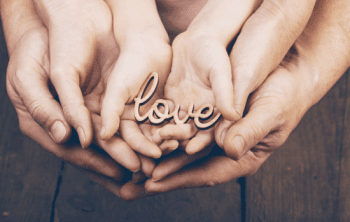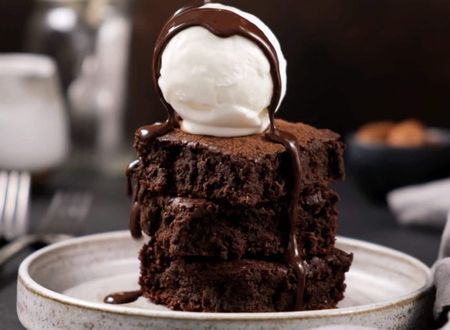Once upon a time, soaring high in the blue sky, gliding on its wide wings, hundreds of feet above a pristine lake, a young eagle was scanning for food. It spotted a fish swimming in the crystal clear water. Without a moment’s delay, it dived and preyed on the fish, grabbing it with its sharp claws. It thought of flying to higher ground so it could sit and dine on its catch in peace.
Barely had it taken off though when a number of eagles, a whole convocation, started chasing it. They were bigger in size and more experienced in hunting. The young one tried hard to hold on to the fish, it haplessly flapped its wings to fly far away, but the other eagles continued their brutal attack. Driven by their own hunger, they were willing to kill the young eagle. It got badly wounded, some of its feathers became dislodged from its body and it was bleeding in many places. In between this snitching and snatching, tired of fighting against the other birds, it lost hold of its game.
With great speed, the fish fell towards the ground. All the other birds left the young one alone and went straight for the fish instead. To the surprise of this eagle, no one was after it anymore; they were not hurting him any longer. It flew to a nearby tree. Sitting on a branch, examining the wounds, a realization dawned on him:
“I thought they hated me, and that’s why they were attacking me. I really believed they hurt me because they didn’t like me. The truth is they had nothing to do with me. It was not about me. It was simply about the fish. It was all about what I had and not what I was.”
People do not love you or hate you. It is not actually about you. It is not ‘who’ they love; it is ‘what’ they love. It is not ‘who’ they want; it is ‘what’ they want. They are not after you; they are after what you have in you.
When you are no longer able to offer what they want or when they no more want what you have, their love starts to fade away. This is why people can grow out of relationships. So many times, readers write to me telling me their partner is good, that they want to stay in the relationship but they are just not motivated. Well, it means the priorities have changed. Sad but true.
Nature has evolved based on needs. The sustenance of relationships is often dependent on what people have to offer each other. Species have survived because they took care of themselves. It is ingrained. Believe it or not, if you want someone to love you constantly, you have to keep offering what they want. You have to keep modifying yourself according to their needs. I am not just talking about care, kinship and bond; I am talking about love. Especially if their love is dependent on the fulfillment of their own desires or needs, they will continue to love you as long as you have the capacity to fulfill them.
When you offer them what they do not want, they become disinterested in you. Imagine sitting on a pile of gold and offering it to a monkey; envision offering bundles of grass to lions; they are not interested. When they become uninterested in what you have, they grow out and they move on. Their interests vary based on their priorities. Imagine offering food to someone who just had a full meal, not interested.
Does selfless, unconditional love exist? Yes.
It is a rarity, though. Selfless care is more common. When you want someone to love you the way you love them, you are asking for a little too much. Because, for them to love you back the same way, they would have to be exactly like you, they would need to want what you want, and they would need to lose their own identity. If you want someone to love you the way you love them, this is also not unconditional love. Because you still have a condition.
The young and rich widow says to Mulla, “Will you always love me this much?”
“The sun may rise from the west,” said he, “but my love for you can’t go down even by an ounce.”
“Well, my in-laws have filed a suit against me, and I’m likely to lose all my wealth.”
“That doesn’t bother me,” Mulla said confidently, “I may never see you again, but I’ll never stop loving you.”
Words are easy. The fact is most worldly relationships are held together by a degree of self-interest. Such self-interest is not always material. It may be in the form of intangible things like emotional and moral support etc. I am merely stating a fact without tagging it good or bad, right or wrong.
When someone hates you, just know that they only hate what they do not understand about you. Be it another person, a religion, a philosophy, or an ideology; you can only ever hate what you do not understand. As soon as you understand something, you develop either love or compassion towards it. Sometimes, unconditional love too. Why does a child hate green vegetables? The same child, when grown up, happily drinks wheatgrass juice and willingly munches on distasteful raw greens. Why? Interest, need, understanding? Need I say more?
So, you have two choices, one, either be yourself, ever doing the right karma(also read what are right karma quotes?), be happy with the varying degrees of love you get, or, two, keep adapting, adopting, and asking for more. The first one is synonymous with turning inward, and the second one is insatiable, a bottomless pit, an endless pursuit.
You can give unconditional love to yourself and others.
Peace.
Swami
Editorial Note
Unconditional love: that most wily of emotions, the most common of pursuits.
When I was a kid, my mom liked to make breakfast food for dinner every now and then. And I remember one night in particular when she had made dinner after a long, hard day at work. On that evening so long ago, Mom placed a plate of eggs, sausage and extremely burnt biscuits in front of Dad.
I remember waiting to see if anyone noticed!
Yet all Dad did was reach for his biscuit, smile at Mom and ask me how my day was at school. I don’t remember what I told him that night, but I do remember watching him smear butter and jelly on that biscuit and eat every bite!
When I got up from the table that evening, I remember hearing Mom apologize to Dad for burning the biscuits. And I’ll never forget what he said: “Honey, I love burnt biscuits.”
Later that night, I went to kiss Daddy goodnight and I asked him if he really liked his biscuits burnt. He wrapped me in his arms and said, “Your Momma put in a hard day at work today and she’s real tired. Besides – a little burnt biscuit never hurt anyone!”
(Credit)
Course
Art of Meditation
Free yourself from suffering and live life to the fullest. Learn the yogic technique of meditation in 4 days (and master it over a lifetime)
FAQs on Why do people love or hate you:
What’s love got to do with it, these burnt biscuits? Everything. We are so used to conditional love that we often forget unconditional love is very much possible. All it needs are these simple gestures.
The FAQs below speak to more human experiences of such love, God’s unconditional love and even unconditional friendship!
What is one real example of unconditional love?

What is unconditional love or even just love? It is the very thing that propels us to grow, transform and make the impossible possible. I am not sure if faith can move mountains but I am certain that if the stream of love is gushing from your heart, you can move the entire universe.
Recently, I read the touching story of a woman in Life’s Amazing Secrets by Gaur Gopal Das. Here it is in my own words because I found it too beautiful to just quote verbatim – an example of what love does. It does What Only Love Can Do – it makes you transcend your limitations.
Why do humans crave unconditional love?

Hunger. Hunger is the eternal truth of all living entities. Just look around and see how people are hungry for different reasons. Most are yearning for more money, others are hungry for power, some for status, name and fame and so forth.
Many are craving love.
Our hunger keeps us on our toes, it keeps us going, it motivates us, and also makes us feel important and adequate. But what we want in life often arises from a sense of lacking, even insecurity.
When, however, you feel complete within, you don’t feel starved but full. And when you are full, the urge to be more or have more disappears. The circling around stops.
This is The Eternal Truth.
Is a mother’s love really unconditional?
There is no doubt that a mother’s love for a child is one of the highest types. For a mother, it is full of personal sacrifices. It is one of the purest types because a mother’s primary wish is to see her child well.
That said, in the broader context, it is a little more complicated. And is it unconditional?
It is love; yes, it is perhaps closest to pure love. It may even be the definition of quintessential love. But it is not unconditional; a human relationship is seldom unconditional.
The first condition is the child itself. The child has to be hers. She wouldn’t feel the same intensity with just any other child. It is not about mother and any child but about a mother and her child.
So, it is conditional love, in that sense. And to elaborate, I would like to share with you a little story about such a mother in Unconditional Love.
What are the qualities of unconditional friendship?

One time someone asked me, “How do I know who my real friend is?” I thought this question deserved attention. So, here are the qualities that make up a true friendship:
- True friendships are forged in freedom and thrive on a sense of equality.
- A true friendship offers the personal space to lead the life you have chosen for yourself.
- A good friend is someone who will catch you when you fall but not be a crutch.
- And the only way to have a good friend, a lifelong friend, is to be one.
What else makes up the Essence of Friendship?
Does God’s unconditional love exist?

Around six hundred years ago, when the Indian belief system was deeply rooted in casteism, there lived a devotee called Dhanna Jat. Unlettered, devoted, and hardworking, Dhanna was a servant in the house of a brahmin.
The brahmin was a Vaishnava and an ardent devotee of Krishna. He worshipped Krishna on shaligrama shila, a type of stone found in Gandaki river. Dhanna always felt a natural attraction towards shaligrama and he longed to worship Krishna on that sanctum stone.
Whenever Dhanna raised the topic, his master told him that he was unworthy and unfit. Dhanna was disappointed but not disheartened. He kept serving his master and pleaded at every opportunity to have a shaligrama.
Ultimately, his master thought that there was no harm in giving him just any other stone; Dhanna wouldn’t know the difference anyway, he thought. So, he gave him an ordinary rock.
Read on to know how Krishna manifested before the poverty-stricken, love-filled Dhanna, in His glory, with that most charismatic smile, with that maddening fragrance that emitted naturally from Him, with those eyes that contained the brilliance of a million suns, that radiance on his face like that of infinite full moons.
This is a Devotee’s Resolution. God’s Manifestation. This is endless love, this is real love.
What are the 4 pillars of unconditional love?
Live. Laugh. Love. Give. These are the four pillars of life.
What are the four pillars of love? The video below tells you.

Timeline:
- 1:16: The first pillar of love
- 2:30: The boy with a temper
- 5:36: The second pillar of love
A GOOD STORY
There were four members in a household. Everybody, Somebody, Anybody and Nobody. A bill was overdue. Everybody thought Somebody would do it. Anybody could have done it but Nobody did it.
Don't leave empty-handed, consider contributing.It's a good thing to do today.









Comments & Discussion
16 COMMENTS
Please login to read members' comments and participate in the discussion.